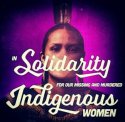Patience
Former Member
- Joined
- Dec 5, 2007
- Messages
- 2,668
- Reaction score
- 249
http://site.macleans.ca/longform/almost-missing/index.html
Over the last several months, 13 Indigenous survivors of horrific violence have chosen to recount their stories to Maclean’s. They come from coastal fishing communities, from remote, fly-in reserves, small-town Canada, and the country’s largest cities. What unites them is a shared pain: “It could have been me,” as Kim Jonathan, interim chief of the Federation of Saskatchewan Indian Nations, the country’s highest-ranking female Indigenous leader says. “I could have been among the missing and murdered.” Every one of them agreed to be named and photographed. They are speaking up in an attempt to change the way we perceive the girls and women we continue to lose at an appalling rate; and to shift the discourse on Canada’s missing and murdered, a narrative that too often blames the victim, and fails to consider the historical context that led to here. (Maclean’s chose not to use the names of two victims of spousal abuse from isolated, northern communities with no on-site police: it was feared that doing so could put their children at risk.)
One woman, in the weeks leading to publication, had to tell her teenaged sons she had been raped so they heard it from her first; another told her father for the first time that she had been sexually assaulted. Some had never shared these stories before—with anyone. In speaking out, these women shatter every stereotype: They are nurses, accountants, politicians, business owners, student leaders. Eleven of 13 have post-secondary education.
Their voices are critically important, particularly when the federal government remains fiercely opposed to a public inquiry. In the months Maclean’s spent gathering their stories it became clear that multiple factors are putting some Indigenous women at greater risk. Eleven of 13 are direct descendants of residential school survivors. More than two-thirds had mothers who were also victims of rape. Some could point to grandmothers who were also victimized: a cycle of sexual violence that in many cases began at residential school. In Mona Woodward’s family, four generations of women have been raped.
Over the last several months, 13 Indigenous survivors of horrific violence have chosen to recount their stories to Maclean’s. They come from coastal fishing communities, from remote, fly-in reserves, small-town Canada, and the country’s largest cities. What unites them is a shared pain: “It could have been me,” as Kim Jonathan, interim chief of the Federation of Saskatchewan Indian Nations, the country’s highest-ranking female Indigenous leader says. “I could have been among the missing and murdered.” Every one of them agreed to be named and photographed. They are speaking up in an attempt to change the way we perceive the girls and women we continue to lose at an appalling rate; and to shift the discourse on Canada’s missing and murdered, a narrative that too often blames the victim, and fails to consider the historical context that led to here. (Maclean’s chose not to use the names of two victims of spousal abuse from isolated, northern communities with no on-site police: it was feared that doing so could put their children at risk.)
One woman, in the weeks leading to publication, had to tell her teenaged sons she had been raped so they heard it from her first; another told her father for the first time that she had been sexually assaulted. Some had never shared these stories before—with anyone. In speaking out, these women shatter every stereotype: They are nurses, accountants, politicians, business owners, student leaders. Eleven of 13 have post-secondary education.
Their voices are critically important, particularly when the federal government remains fiercely opposed to a public inquiry. In the months Maclean’s spent gathering their stories it became clear that multiple factors are putting some Indigenous women at greater risk. Eleven of 13 are direct descendants of residential school survivors. More than two-thirds had mothers who were also victims of rape. Some could point to grandmothers who were also victimized: a cycle of sexual violence that in many cases began at residential school. In Mona Woodward’s family, four generations of women have been raped.

